Europe

Image of the King’s Departure
This engraving depicts the King, his wife, and his children meeting at half–past midnight on 21 June 1791, about to board a carriage in which they will flee secretly from Paris toward the border. The King and Queen were poorly disguised as servants to a German noblewoman.
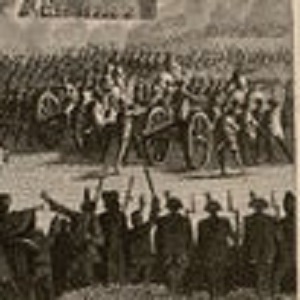
Return from Varennes, Arrival of Louis Capet in Paris
Following his arrest, Louis and his family are returned to Paris. Large, silent crowds looked on disapprovingly.
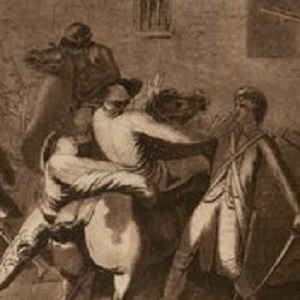
Fleeing by Design or the Perjurer Louis XVI
Another engraving of the King’s arrest portrays the guard apprehending Louis and his family in their flight from Paris in June 1791. From Varennes, the royal family is brought back to Paris accompanied by three deputies of the National Assembly, armed guards, and a sometimes angry crowd.

Louis XVI Stopt in his Flight at Varennes
This romantic English painting of the King’s flight suggests only a few feet separated the King from escape.
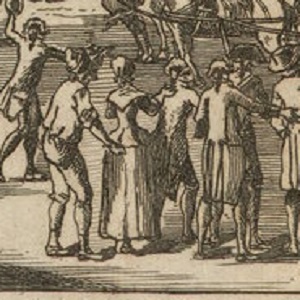
Arrest of the King at Varennes, 22 June 1791
These images, all engraved and widely circulated years after the event, show four different moments of the arrest. Each successive image renders the scene increasingly dramatic. The first, a woodcut executed shortly after the event, shows the postman alone recognizing the King.

Bonaparte, First Consul, Putting Away His Sword after the General Peace
The engraving celebrates the peace treaties of 1801 and 1802. The lack of perspective in this image reflects the vision that Napoleon wanted the French to have when they thought about his actions. Making peace proved to be one of Napoleon’s more popular decisions.
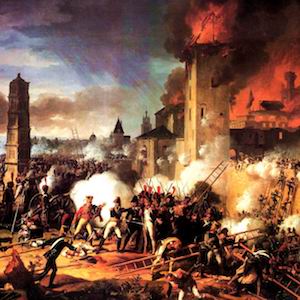
Battle For and Taking of Ratisbon, April 23, 1809
The general peace agreement lasted a scant two years after the treaty of 1801.

Sire, They Are My Sons and My Wife
Napoleon cultivated the intense personal loyalty of his troops with engravings like this one, which suggests a personal interest in the ordinary soldier.

Meeting of the Emperors at Tilsit
In July 1807, Napoleon and Alexander agreed to cooperate. Napoleon used this strategy to prevent his enemies from forming an alliance against him.
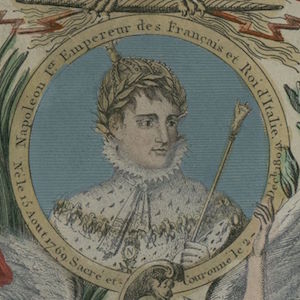
The Royal and Imperial Family of Napoleon
The remainder of the text on this image reads: Emperor of the French, King of Italy, and Protector of the Confederation of the Rhine. The military flags make clear the connection between military conquest and imperial glory.